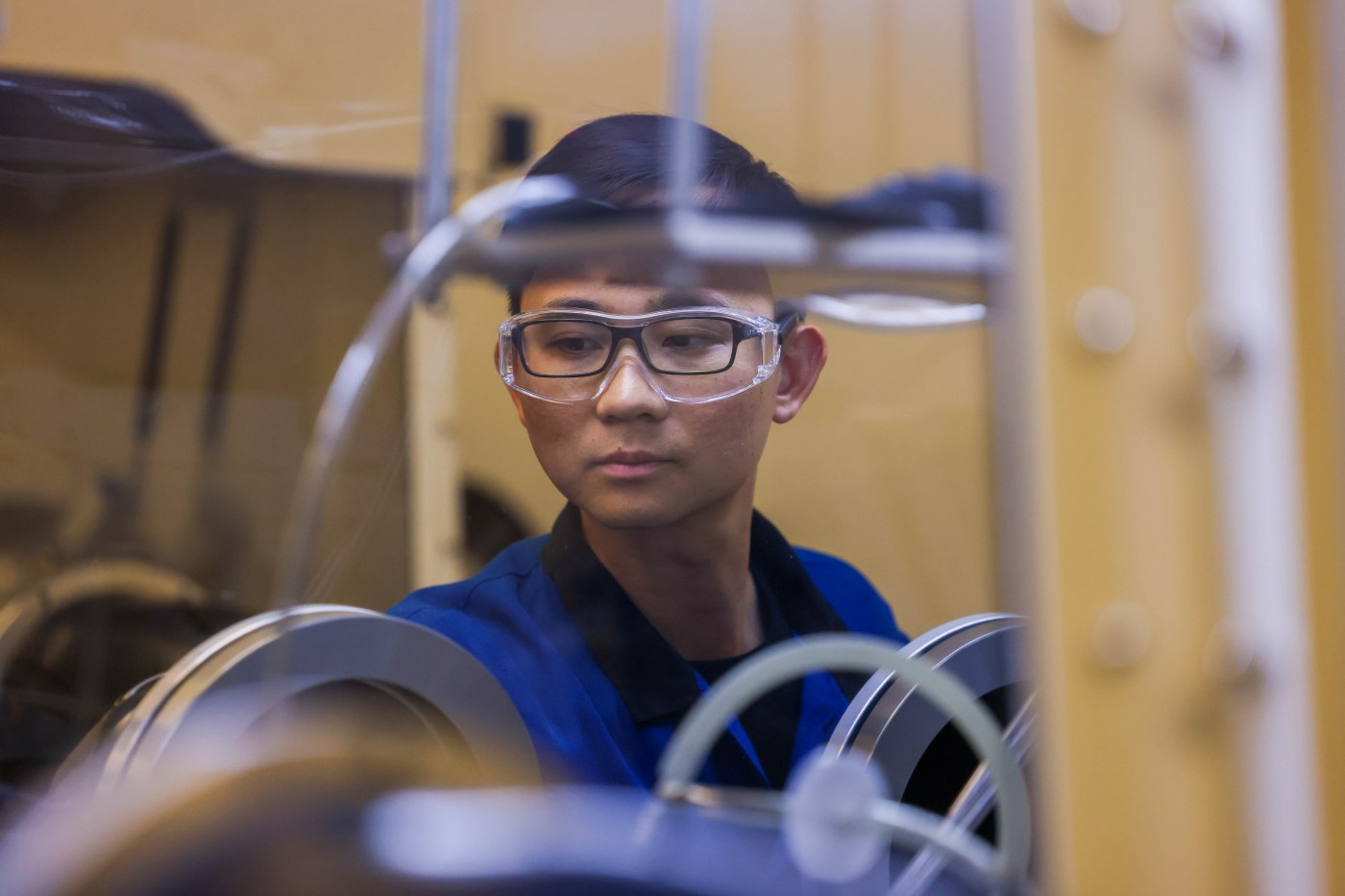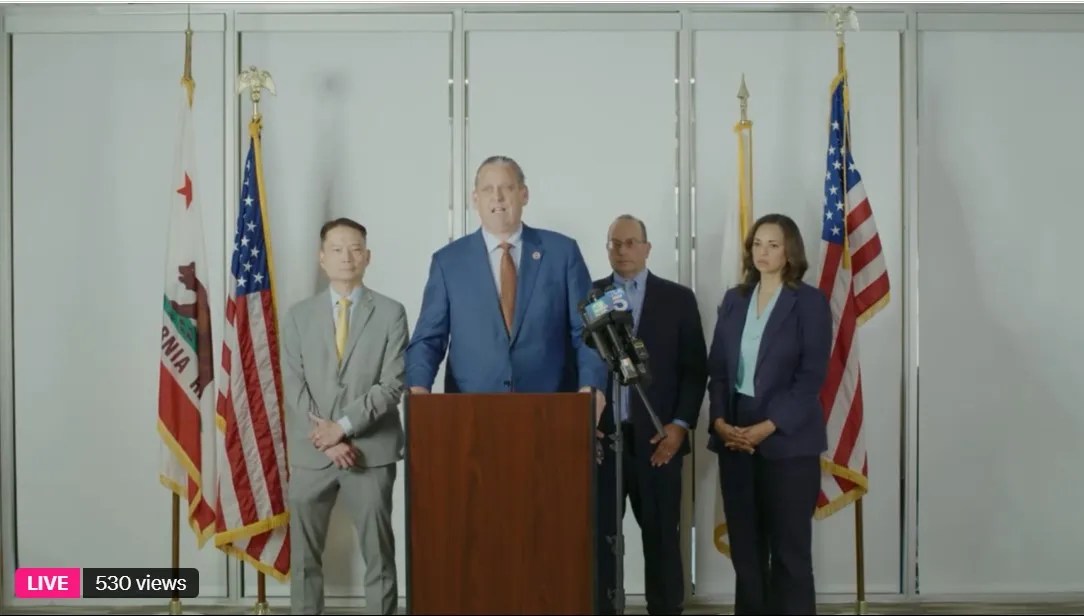In Monterey County’s Moss Landing, more than 1,000 people were forced to evacuate in January when one of the largest storage facilities for lithium-ion batteries in the world caught fire. Days later, the toxic metals nickel, cobalt and manganese were found at nearby Elkhorn Slough in unusually high concentrations. One county supervisor called it a “wake-up call” for battery safety in the ongoing push for sustainable energy. Local residents sued several companies involved with the batteries and their storage, claiming negligence and that the lithium-ion batteries being stored there were “prone to thermal instability.”
Related Articles
Silicon Valley’s famous startup grind returns, with hours that can approach China’s infamous ‘996’
From anti-poverty crusader to $248 million fraudster: California investor pleads guilty to federal charges
Honda taps Silicon Valley startup in self-driving software deal
South Bay startup, CEO to pay $630,000 for improperly obtaining federal grant funds
Nvidia-backed Lambda eyes funding at over $4 billion valuation
Though the federal government deems lithium-ion batteries “generally safe,” law enforcement agencies periodically remind the public of their risks, such as fires and explosions. But one company opening its new headquarters in Alameda says they have created the “next generation” of batteries that are safer and will revolutionize industries from portable devices to electric vehicles.
While most batteries use a liquid lithium-ion core that can leak and combust, Anthro Energy’s solid-state batteries use a patented technology to solidify the core. The result is a non-flammable, semi-solid battery with 35% more energy density than traditional batteries, and is resistant to leaking, warping and combustion, Anthro Energy claims. According to a review from the University of California, Riverside, solid-state batteries are safer than their traditional counterparts.
Anthro opened its new headquarters in Alameda last week. It’s the latest technology company to set up shop on Bay Farm Island in Alameda, which is gaining a reputation for fostering innovation. It’s also attracting the attention of venture capital investors seeking to get in on the ground floor of Anthro’s 31,000-square-foot facility that will produce half a million Anthro battery cells annually.
“What we’re doing is building advanced technology that redefines what’s possible for lithium-ion batteries,” Anthro Energy CEO David Mackanic said to an audience of employees and investors on Wednesday. “We’re building a highly-scalable platform that can respond to rapidly accelerating electrification demands across virtually every industry.”
David Mackanic, CEO of Anthro Energy, shows a lab for lithium-ion battery development to Congresswoman Latiffa Simon during a tour of the Anthro Energy headquarters in Alameda, Calif., on Wednesday, Aug. 21, 2025. (Ray Chavez/Bay Area News Group)
Producing solid-state batteries at an industrial scale has been a challenge for technologists since the earliest solid-state lithium-ion batteries were invented in the 1970s, according to the 2020 book “Advances in Supercapacitor and Supercapatter.” The new batteries were more expensive to produce than their liquid core counterparts, which stymied commercial adoption.
However, the growth of battery-dependent industries like portable electronics, green energy storage and electric vehicles over the past 15 years has fueled a race to create safer, more efficient batteries, Anthro’s Chief Technology Officer Joe Papp said.
In that time, the Bay Area has come to lead the charge on battery research and development with start-up companies like Blue Current and QuantumScape seeking to produce a commercially viable solid-state battery.
“The difference is that they are redoing the entire manufacturing process,” Papp said. “We saw that they had been struggling at this for 10-plus years and couldn’t get the manufacturing right. So we were like, ‘OK, what can we do that fits into the existing manufacturing infrastructure but still gives some of these benefits?’”
Anthro’s approach has helped them secure $43 million in federal awards from the Inflation Reduction Act and the Department of Energy, in addition to $5 million from the California Energy Commission. At the grand opening on Wednesday,
Rep. Lateefah Simon (D-12) said the “young spirit” of Anthro and its co-founders shows remarkable potential.
“Anthro is going to power Alameda,” Simon said. “We want to be able to breathe clean air and empower the next generation of folks who understand that innovation doesn’t have to be an attack on our environment.”
Congresswoman Lateefah Simon takes a closer look at an electrotype used for lithium-ion battery development during a tour of the Anthro Energy headquarters in Alameda, Calif., on Wednesday, Aug. 21, 2025. (Ray Chavez/Bay Area News Group)
Four years ago, Mackanic and Papp took weeks to create 10 grams of the Proteus electrolyte in the corner of a small lab. Now, Anthro’s new manufacturing facility will allow the company to produce it at 1,000 times the previous capacity, enabling the production of up to 500,000 battery cells per year, Mackanic said.
Wednesday’s grand opening was proof that the next generation of battery technology can also be manufactured at scale on U.S. soil, Mackanic said.
Mackanic sees the application of Anthro’s batteries across a myriad industries and meeting the critical needs of modern technology.
“Batteries are changing the way we collect data, we communicate with each other, the way we move around, and the way we power our electrical grid. Building better batteries to accelerate this transition is one of the defining challenges in our time,” Mackanic said. “Quantitatively, this facility represents the full scale-up and production capacity for Anthro, producing enough advanced electrons and advanced battery cells to power millions of devices with this next-generation technology.”





